XAIDA Webinar #12

The 12th session of our webinar will occur on November 28th at 10:30 AM CET. Paula Gonzalez (IPSL) will present her work on ‘Forecasting yearly record probabilities from historical measurements’
Check out the details to attend, discuss and follow the discussion!
XAIDA Webinar #11

The 11th session of our webinar will occur on November 5th at 2 PM CET. Fiona Spuler (Univ. Reading) will do a presentation on ‘Identifying probabilistic weather regimes targeted to a local-scale impact variable based on a modified variational autoencoder architecture’.
Check out the details to attend, discuss and follow the discussion!
2024 Annual General Assembly

The 3rd Annual General Assembly of the XAIDA project is taking place in Leipzig, from October 7 to October 9. Focusing on Science and collaborations, this GA gathers 45 people at UFZ KUBUS centre.
Check out the lectures and details.
POLICY BRIEF: RISKS FROM CLIMATE EXTREMES OVER EUROPE AND BEYOND
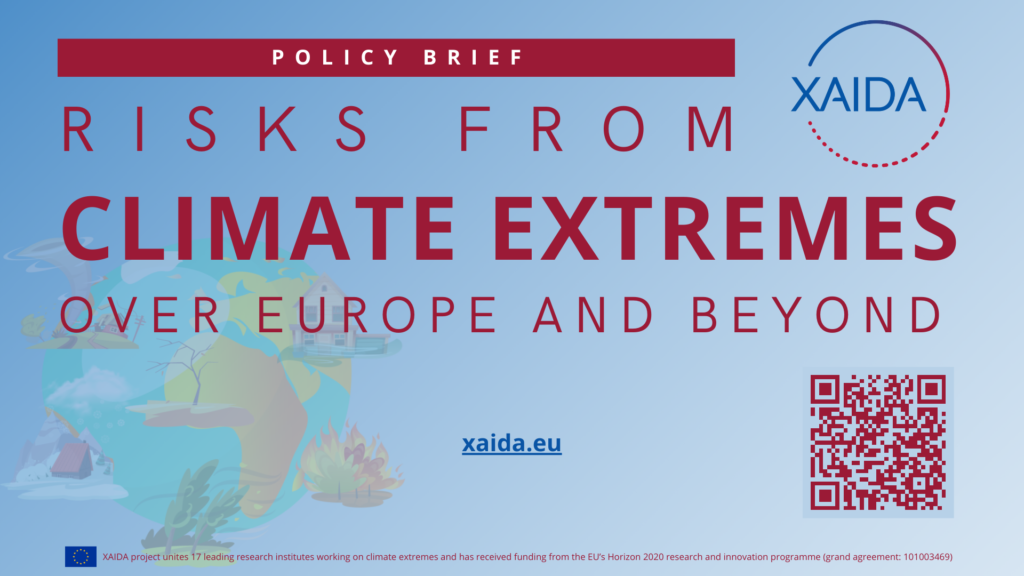
Extreme weather events in 2023 illustrated how poorly prepared the world is for the growing risks of climate change. Nowadays it is possible to use attribution science to investigate the role of climate change and other factors in specific weather and climate extremes. Attribution studies estimate by how much a specific extreme event was made more (or less) likely and/or intense because of climate change. This policy brief summarizes key learnings from the first two years of the XAIDA project and formulates recommendations.
XAIDA Webinar #4

The 4th session of our webinar will occur on April 9th at 2 PM CET. Miguel Ángel Fernández Torres (IPL, Universitat de València) will present the AIDE Toolbox: Artificial Intelligence for Disentangling Extreme Events.
Check out the details to attend, discuss and follow the discussion!
XAIDA Webinar #3

The 3rd session of our webinar will occur on March 19th at 2 PM CET. José M. Tárraga will speak about Exploring interactions between socioeconomic context and natural hazards on human population displacement.
Check out the details to attend, discuss and follow the discussion!
SUMMER TRAINING SCHOOL: I2C
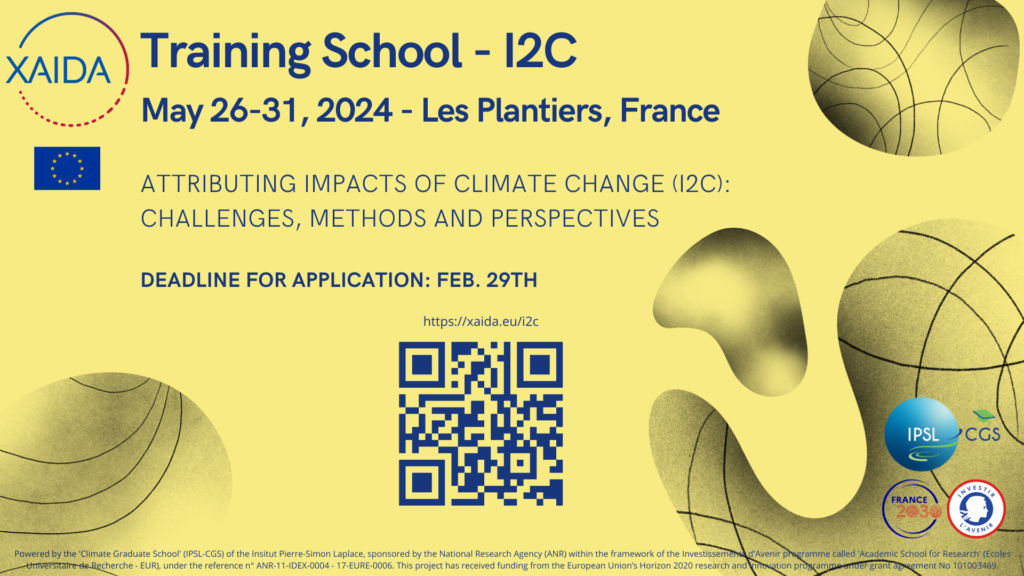
The next XAIDA training school entitled ‘Attributing Impacts of Climate Change (I2C): Challenges, Methods and Perspectives’ took place on May 26-31, 2024 in the Les Plantiers village, in France.
Check out the lectures and details.
XAIDA Webinar #2
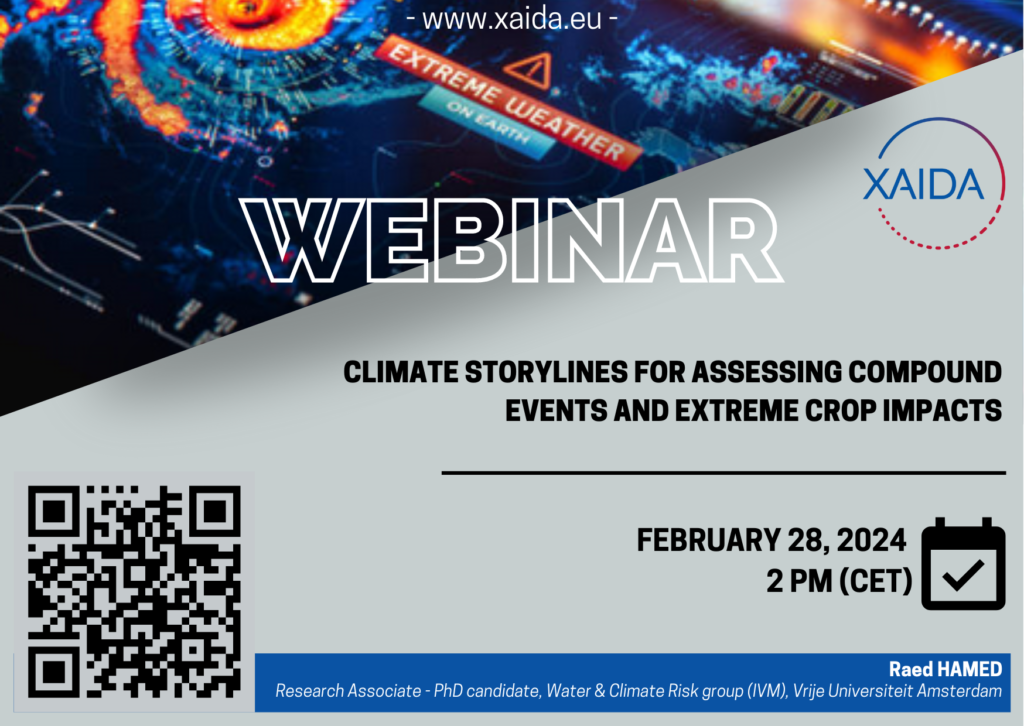
The 2nd session of our webinar will occur on Feburary 28th at 2 PM CET. Raed Hamed (VU) will speak about Climate storylines for assessing compound events and extreme crop impacts.
Check out the details to attend, discuss and follow the discussion!
XAIDA Webinar #1
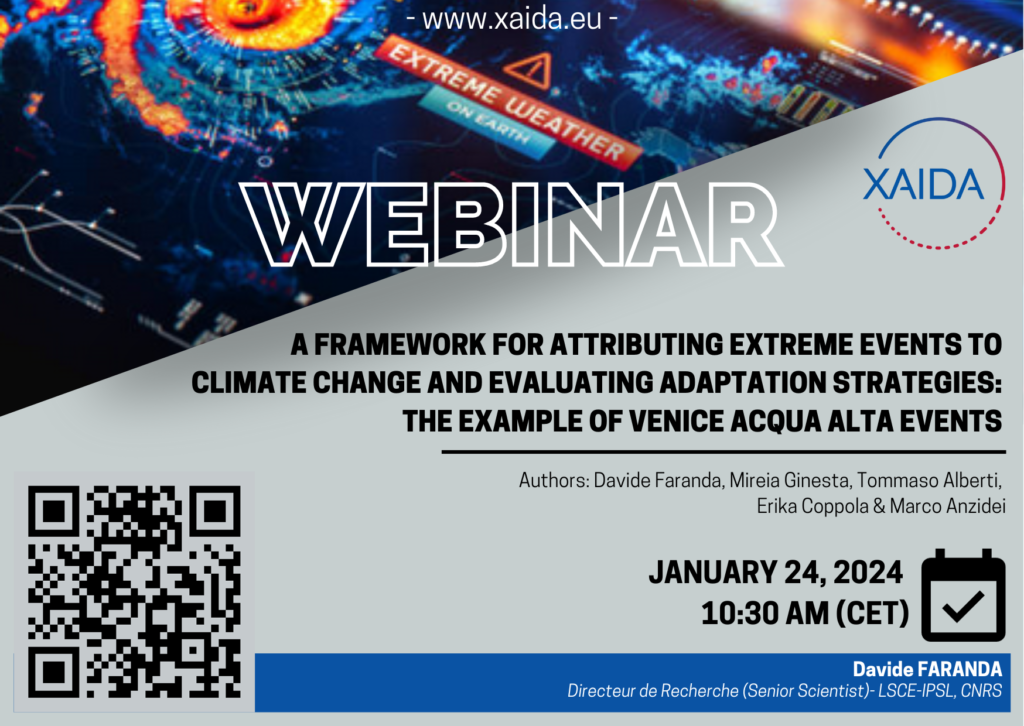
The 1st session of our webinar will occur on January 24th at 10:30 AM CET. Davide FARANDA (CNRS) will speak about A framework for attributing extreme events to climate change and evaluating adaptation strategies: the example of Venice Acqua Alta events.
Check out the details to attend, discuss and follow the discussion!
PRESS: MANY DEVASTATING EXTREMES IN 2023 WERE AMPLIFIED BY GLOBAL WARMING
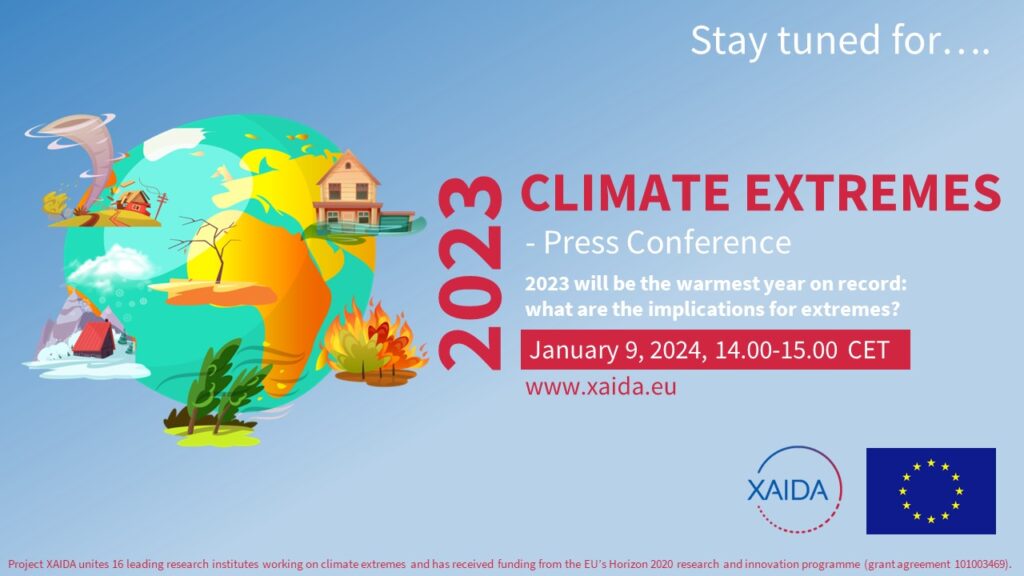
In 2023, the world reached new record temperatures, with an unprecedented global mean temperature of 1.48°C above pre-industrial levels. These record temperatures strongly increased the intensity of heatwaves, droughts and extreme rainfall associated with storms like Otis and Daniel.
The XAIDA team hosted a Press Conference on January 9th 2024 at 2pm CET to explain these results and methods. Find the Press Release and the video record of the Press Conference here.
